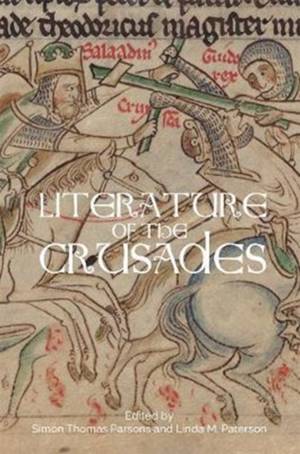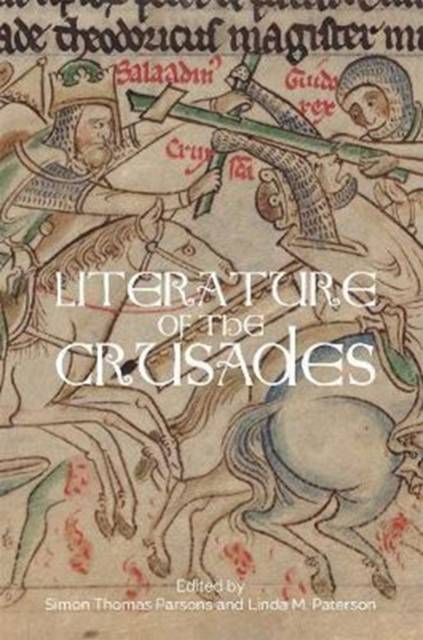
- Retrait gratuit dans votre magasin Club
- 7.000.000 titres dans notre catalogue
- Payer en toute sécurité
- Toujours un magasin près de chez vous
- Retrait gratuit dans votre magasin Club
- 7.000.0000 titres dans notre catalogue
- Payer en toute sécurité
- Toujours un magasin près de chez vous
83,95 €
+ 167 points
Description
An interdisciplinary approach to sources for our knowledge of the crusades. The interrelation of so-called "literary" and "historical" sources of the crusades, and the fluidity of these categorisations, are the central concerns of the essays collected here. They demonstrate what the study of literary texts can do for our historical understanding of the crusading movement, challenging earlier historiographical assumptions about well-known poems and songs, and introducing hitherto understudied manuscript sources which elucidate a rich contemporary compositional culture regarding the matter of crusade.
The volume discusses a wide array of European textual responses to the medieval crusading movement, from the Plantagenet and Catalan courts to the Italy of Charles of Anjou, Cyprus, and the Holy Land. Meanwhile, the topics considered include the connexions between poetry and history in the Latin First Crusade texts; the historical, codicological and literary background to Richard the Lionheart's famous song of captivity; crusade references in the troubadour Cerverí of Girona; literary culture surrounding Charles of Anjou's expeditions; the use of the Mélusine legend to strengthen the Lusignans' claim to Cyprus; and the influence of aristocratic selection criteria in manuscript traditions of Old French crusade songs. These diverse approaches are unified in their examination of crusading texts as cultural artefacts ripe for comparisonacross linguistic and thematic divides. SIMON THOMAS PARSONS teaches Medieval History at Royal Holloway, University of London and King's College London; LINDA PATERSON is Professor Emerita at Warwick University. Contributors: Luca Barbieri, Miriam Cabré, Jean Dunbabin, Ruth Harvey, Simon John, Charmaine Lee, Helen J. Nicholson, Simon Parsons, Anna Radaelli, Stephen Spencer, Carol Sweetenham.
The volume discusses a wide array of European textual responses to the medieval crusading movement, from the Plantagenet and Catalan courts to the Italy of Charles of Anjou, Cyprus, and the Holy Land. Meanwhile, the topics considered include the connexions between poetry and history in the Latin First Crusade texts; the historical, codicological and literary background to Richard the Lionheart's famous song of captivity; crusade references in the troubadour Cerverí of Girona; literary culture surrounding Charles of Anjou's expeditions; the use of the Mélusine legend to strengthen the Lusignans' claim to Cyprus; and the influence of aristocratic selection criteria in manuscript traditions of Old French crusade songs. These diverse approaches are unified in their examination of crusading texts as cultural artefacts ripe for comparisonacross linguistic and thematic divides. SIMON THOMAS PARSONS teaches Medieval History at Royal Holloway, University of London and King's College London; LINDA PATERSON is Professor Emerita at Warwick University. Contributors: Luca Barbieri, Miriam Cabré, Jean Dunbabin, Ruth Harvey, Simon John, Charmaine Lee, Helen J. Nicholson, Simon Parsons, Anna Radaelli, Stephen Spencer, Carol Sweetenham.
Spécifications
Parties prenantes
- Auteur(s) :
- Editeur:
Contenu
- Nombre de pages :
- 224
- Langue:
- Anglais
Caractéristiques
- EAN:
- 9781843844587
- Date de parution :
- 19-01-18
- Format:
- Livre relié
- Format numérique:
- Genaaid
- Dimensions :
- 156 mm x 234 mm
- Poids :
- 494 g

Les avis
Nous publions uniquement les avis qui respectent les conditions requises. Consultez nos conditions pour les avis.






